Our “transparency Briefs” (or tBriefs for short) seek to discuss the global interest of transparency in fisheries in more detail, including reviewing the evidence of lack of transparency in different aspects of fisheries, looking at emerging priorities (such as beneficial ownership transparency), as well as critically debating the effectiveness of transparency reforms for divergent groups and interests, such as small-scale fisheries, large-scale seafood companies, those fighting illegal fishing, and for governments wanting to develop a sustainable blue economy.
We hope you will find this series interesting and stimulating.
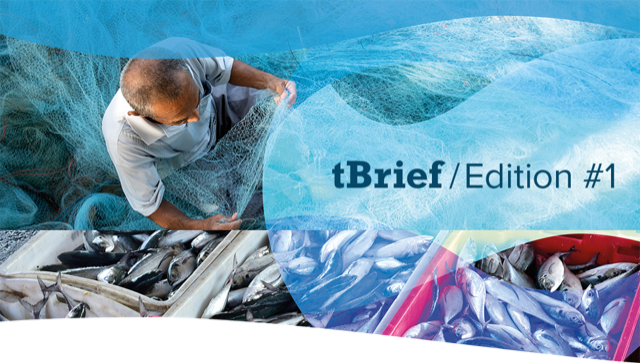
tBrief #1 – TRANSPARENCY IN FISHERIES: Not as clear as it seems
Published: February 2020
Fisheries might have been slow to catch on to the transparency wave, but it is now widely accepted as being fundamental to sustainable fisheries management; yet, the subject is not straightforward at all. In this first edition we look quite broadly at the subject and set out a number of four basic questions in the hope to stimulate interest and debate: What specifically does transparency in fisheries cover? What do we mean by the word transparency? What are the reasons for a lack of transparency? What are the assumptions being made about the impact of increasing transparency?
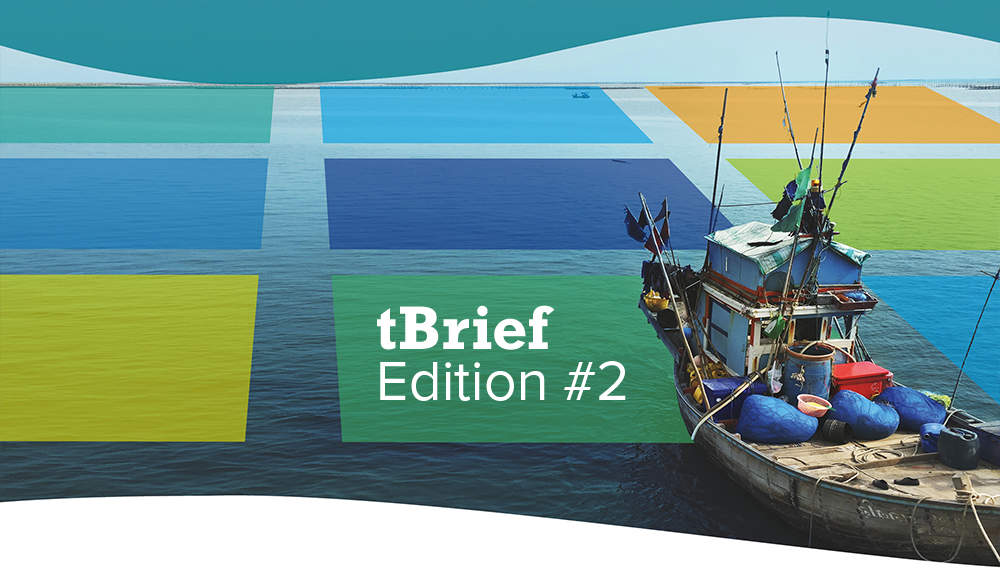
tBrief #2 – TRANSPARENCY OF FISHERIES TENURE: Incomplete, unreliable and misleading?
Published: May 2020
Fisheries tenure systems – how and why governments allocate rights for fishing – is an extremely complex subject, as there are many different types of tenure systems evident around the world. Systems of tenure are critical in influencing the fisheries sector’s social, ecological and economic impacts. However, despite their critical aspects of sustainable fisheries management, in many countries fisheries tenure systems are characterised by secrecy and confidentiality. As a result, people have a limited insights into how tenure systems work, who owns fishing rights, and how the benefits and costs are distributed.
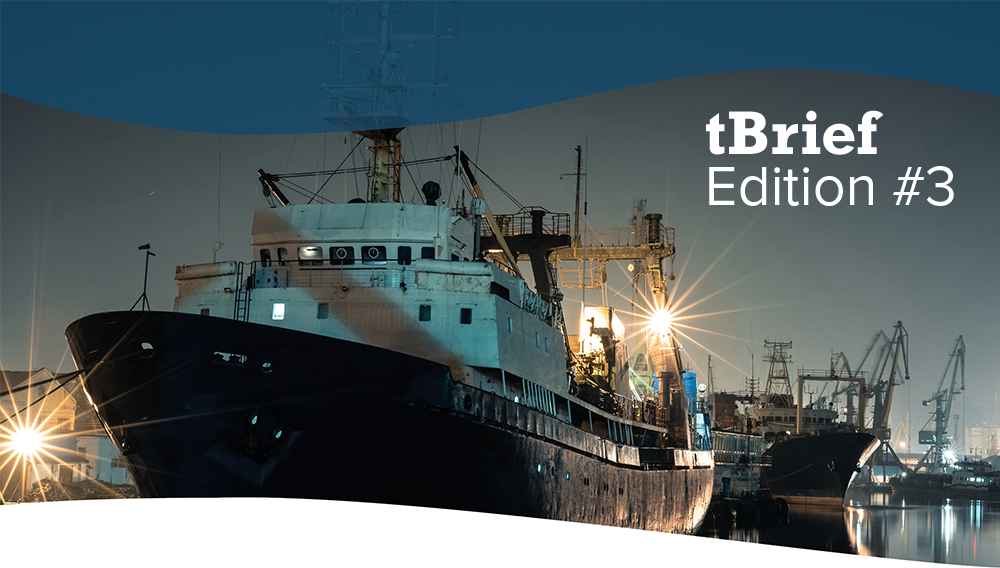
tBrief #3 – FISHING IN THE DARK: Transparency of beneficial ownership
Published: September 2020
Beneficial ownership – that is, the natural person who ultimately owns or controls a business or transaction – is a topic that is grabbing global attention. The negative consequences of a lack of transparency regarding beneficial ownership are all too evident, with special implications for the fisheries sector. In this third edition, we explain the main aspects of BO, highlight major issues when the true identity of the beneficiary is kept hidden, and identify obligations to enhance ownership transparency in fisheries.
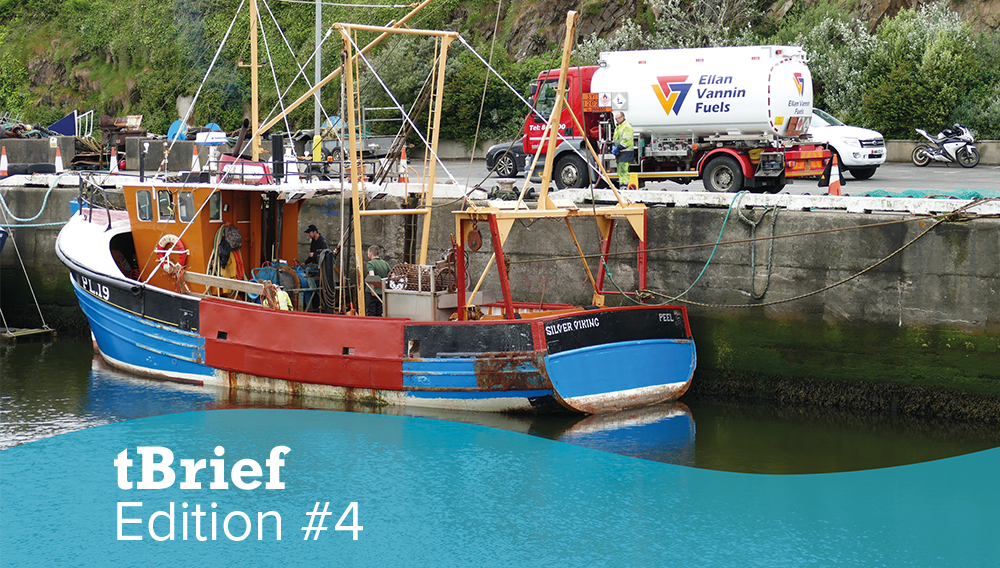
tBrief #4 – A 20-YEAR STRUGGLE: Transparency in subsidies to the fisheries sector
Published: November 2020
Subsidies have become one of the most controversial subjects in debates on fisheries reforms. Perhaps more than any other single factor, subsidies are seen as the source of a range of problems, such as overfishing, illegal fishing and unfair benefit-sharing. In this fourth tBrief edition, we outline the challenges of improving transparency in subsidies to the fisheries sector. Technical disagreements on the interpretation of key terms, as well as the extent of special treatment for developing countries, have hindered the negotiations. But beyond this, many nations appear reluctant to open their fisheries policies up to external scrutiny and potential disciplining.

tBrief #5 – CORRUPTION IN FISHERIES: Transparency to the rescue?
Published: March 2021
Corruption is clearly a critical problem for many sectors. However, corruption in fisheries is given surprisingly limited attention in international debates on fisheries reforms. Transparency is often seen as a prominent way of preventing and detecting corruption by shedding light on government activities, decisions and expenditures, and by increasing levels of accountability. Yet, the power of transparency to fight corruption rarely lies in revealing specific instances of corruption. Instead, transparency’s impact might be more indirect, by helping to shift political debates towards obtaining greater public sector accountability.

tBrief #6 – INVISIBLE, UNDERVALUED AND UNDERAPPRECIATED? Transparency for small-scale fisheries
Published: October 2021
Government transparency matters for small-scale fisheries! Yet, research on small-scale fisheries, as well as on recreational fishing, has consistently found that official data tends to underestimate their scale and importance. Such underestimations create a myriad of problems, including marginalisation of small-scale fisheries in policy-making processes as well as inequitable flows of government support.

tBrief #7 – RESISTING THE URGE TO INDEX: The case against ranking fisheries transparency efforts
Published: July 2022
As attention to transparency in fisheries increases, so is interest in creating a global fisheries transparency index. Yet there are many reasons why this should be resisted. There is doubt over the validity of simple scores, the ambiguity of what they measure, and the assumption that often diverse entities, such as countries, can be easily compared to each other. Indexes also imply that countries are largely responsible for their own scores and can improve by ‘racing to the top’.
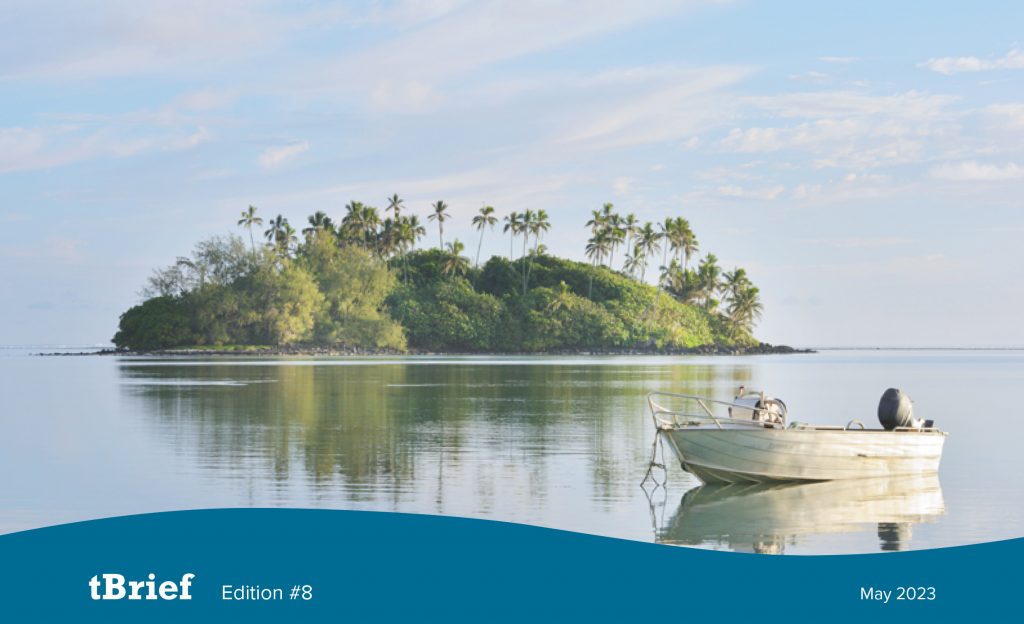
tBrief #8 – DOES SIZE MATTER? The challenge of fisheries transparency in Small Island Developing States
Published: May 2023
Transparency has an elevated importance for fisheries management in Small Island Developing States (SIDS), due
to their high levels of fisheries dependency, their ownership of vast areas of the ocean, etc. At the same time, SIDS face considerable barriers to effective and transparent fisheries management given their biological and cultural specificities, as well as their economic and environmental vulnerabilities. A key challenge is
addressing information gaps, particularly on coastal small-scale fisheries.
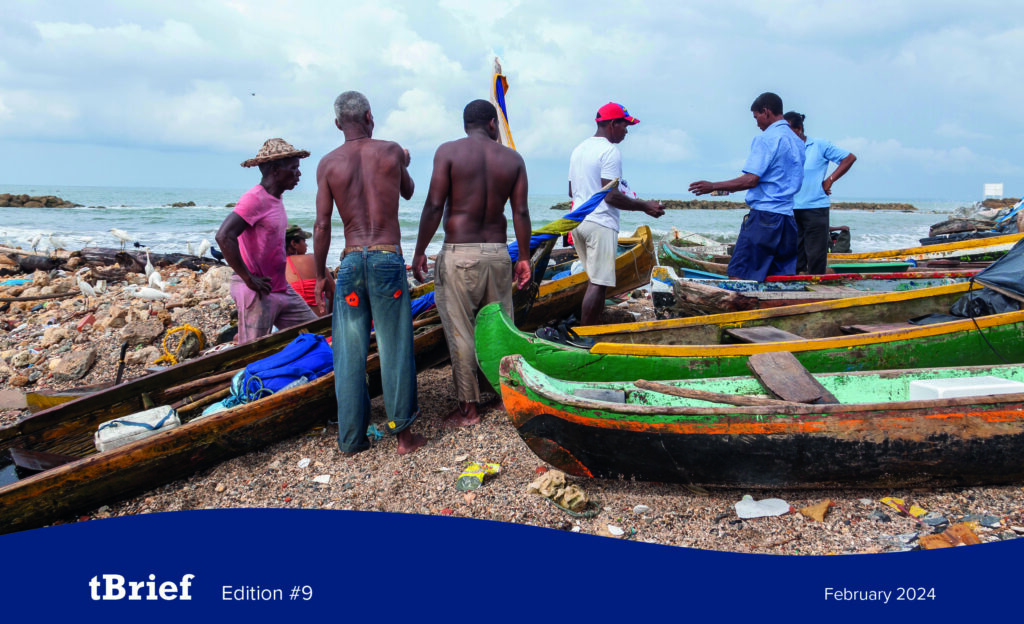
tBrief #9 – FROM TRANSPARENCY TO PARTICIPATION: An elusive relationship?
Published: February 2024
International support for improving transparency in fisheries is often based on the idea that it can strengthen participation in fisheries in management. However, this link tends to be vague, with both transparency and participation often being ill-defined. Participation in fisheries is complex, and there is confusion surrounding to how this is done, on what aspects, by whom, and why. Unsurprisingly, being such a multi-faceted concept, participation in fisheries is often considered disappointing to some.